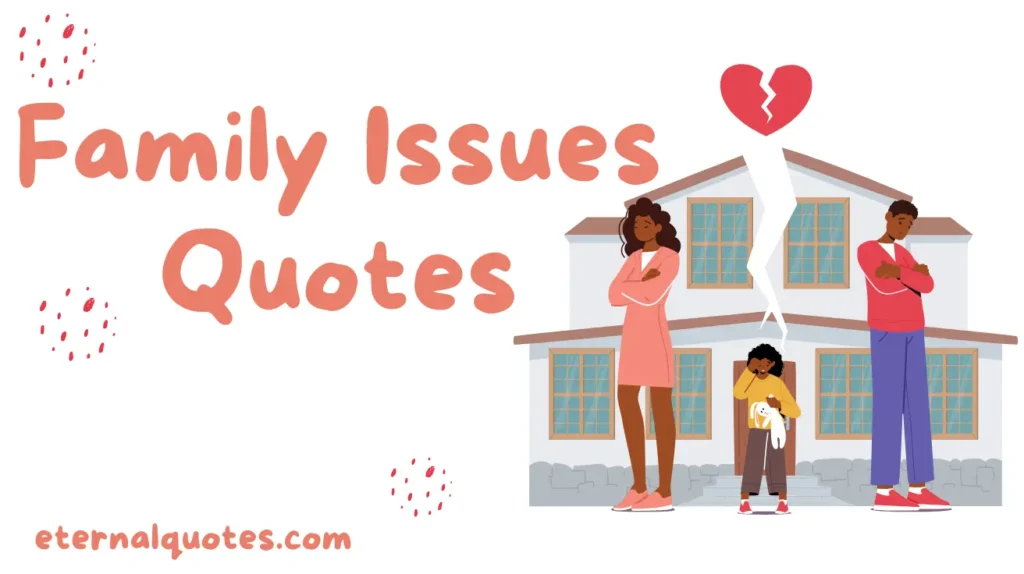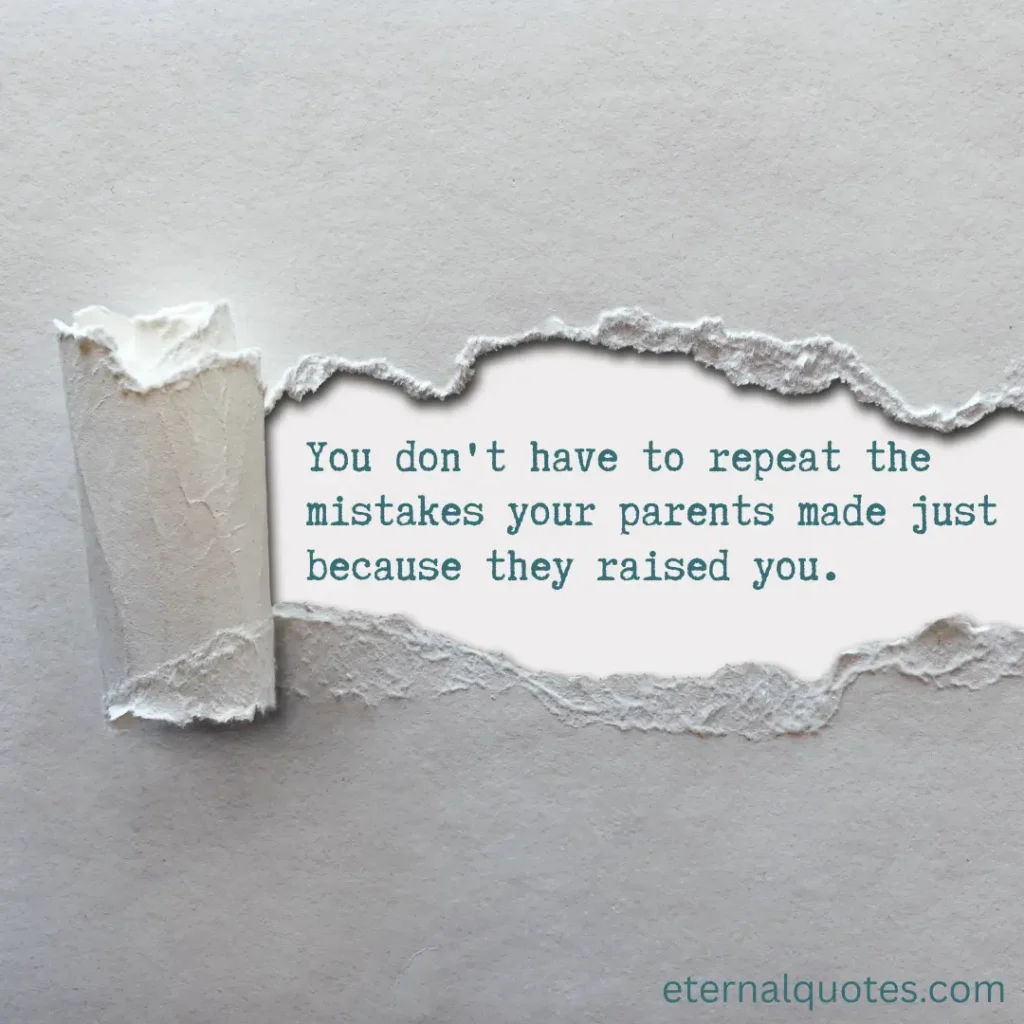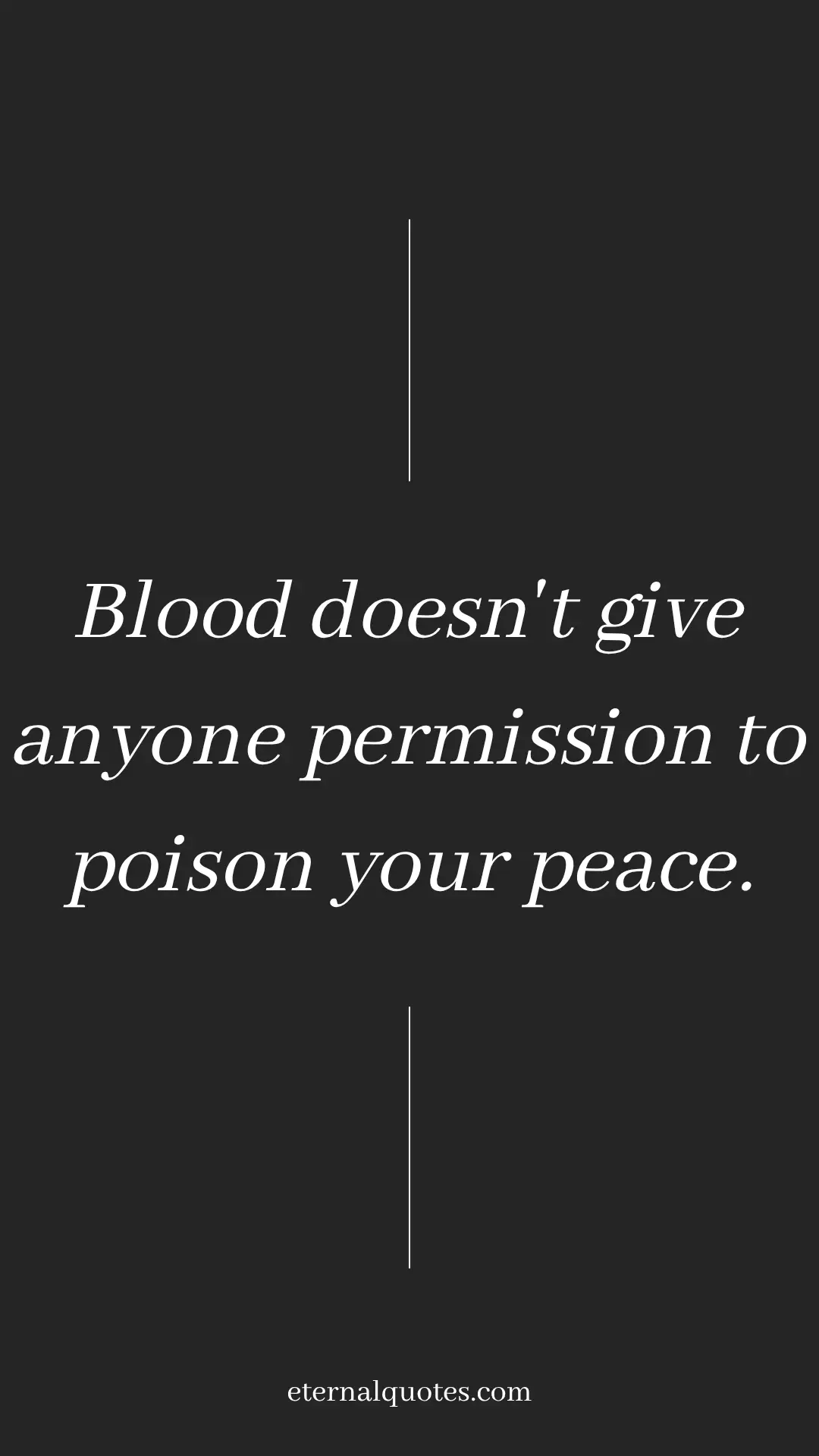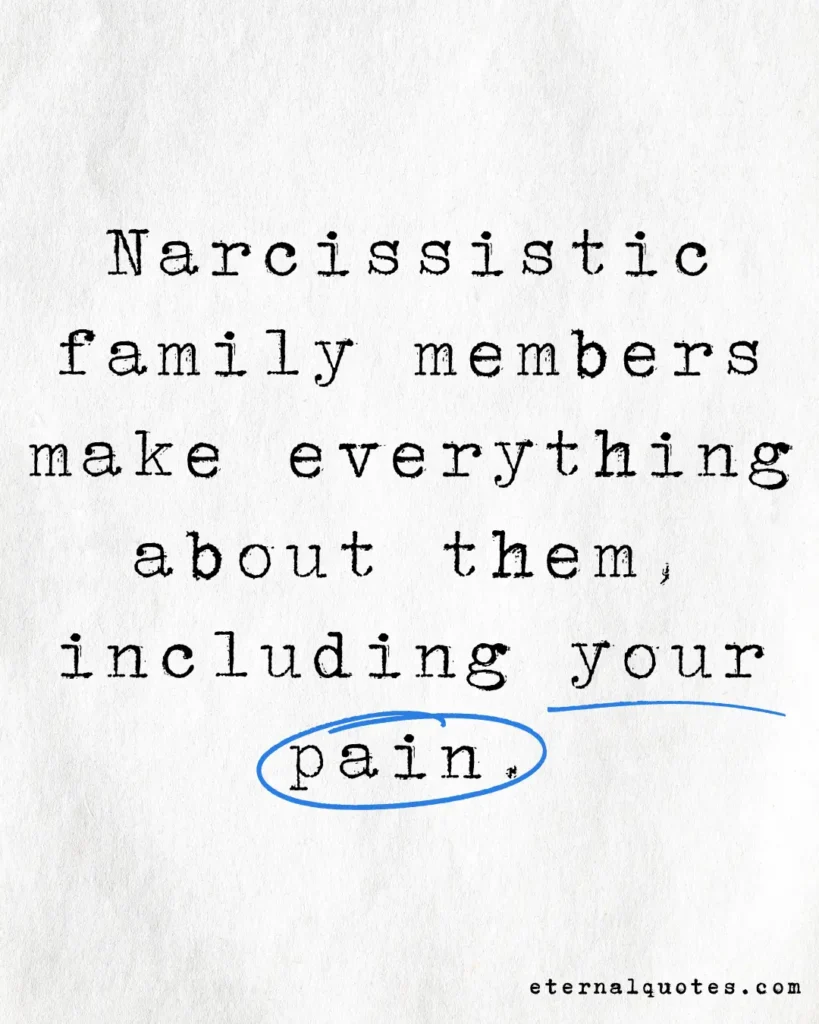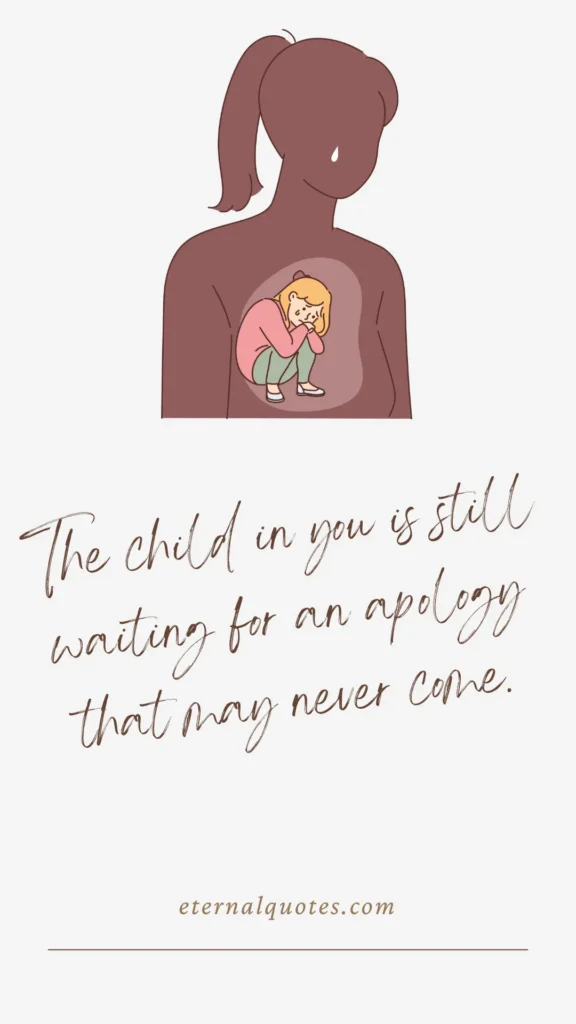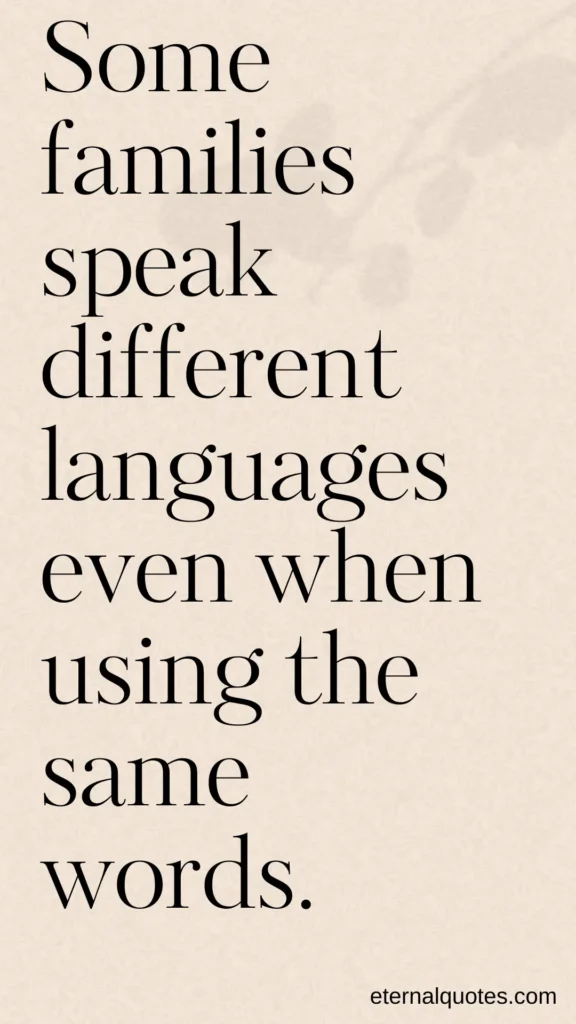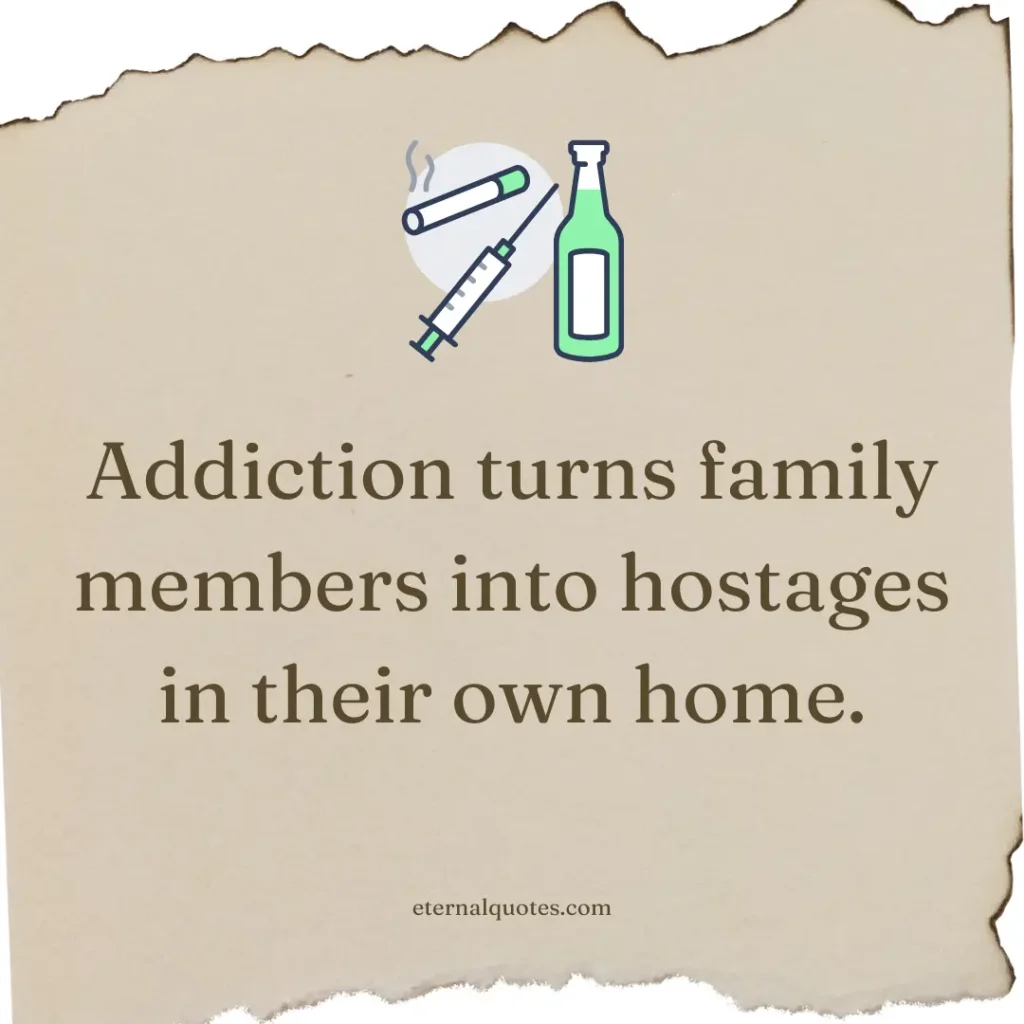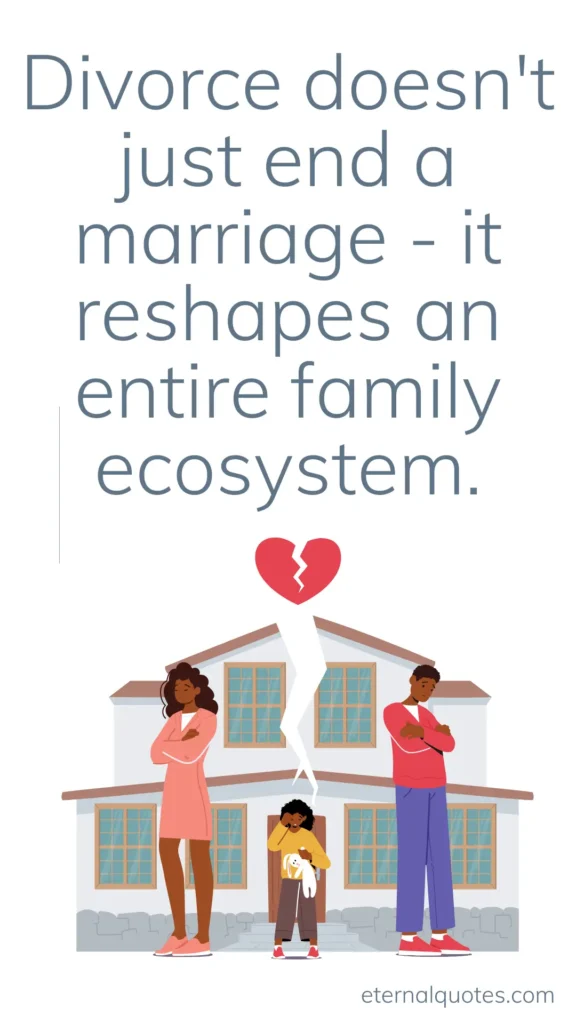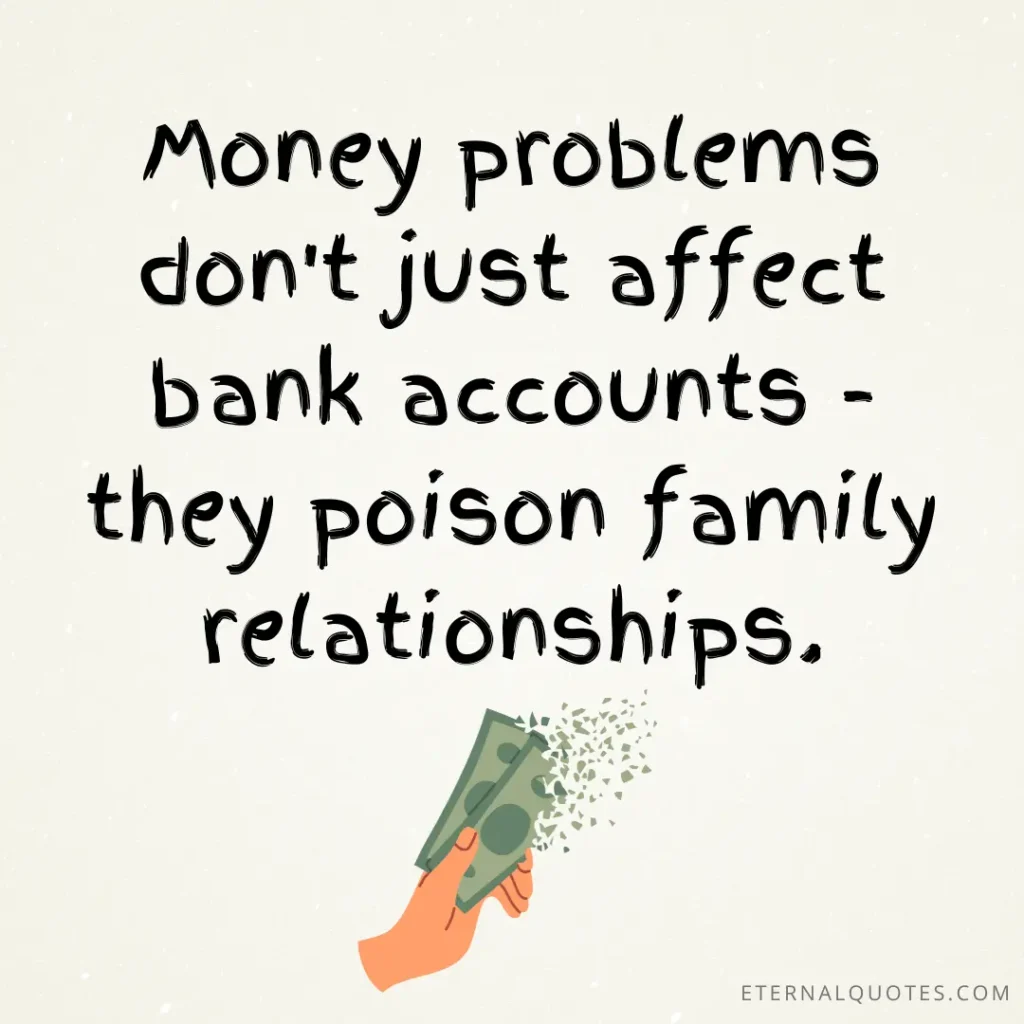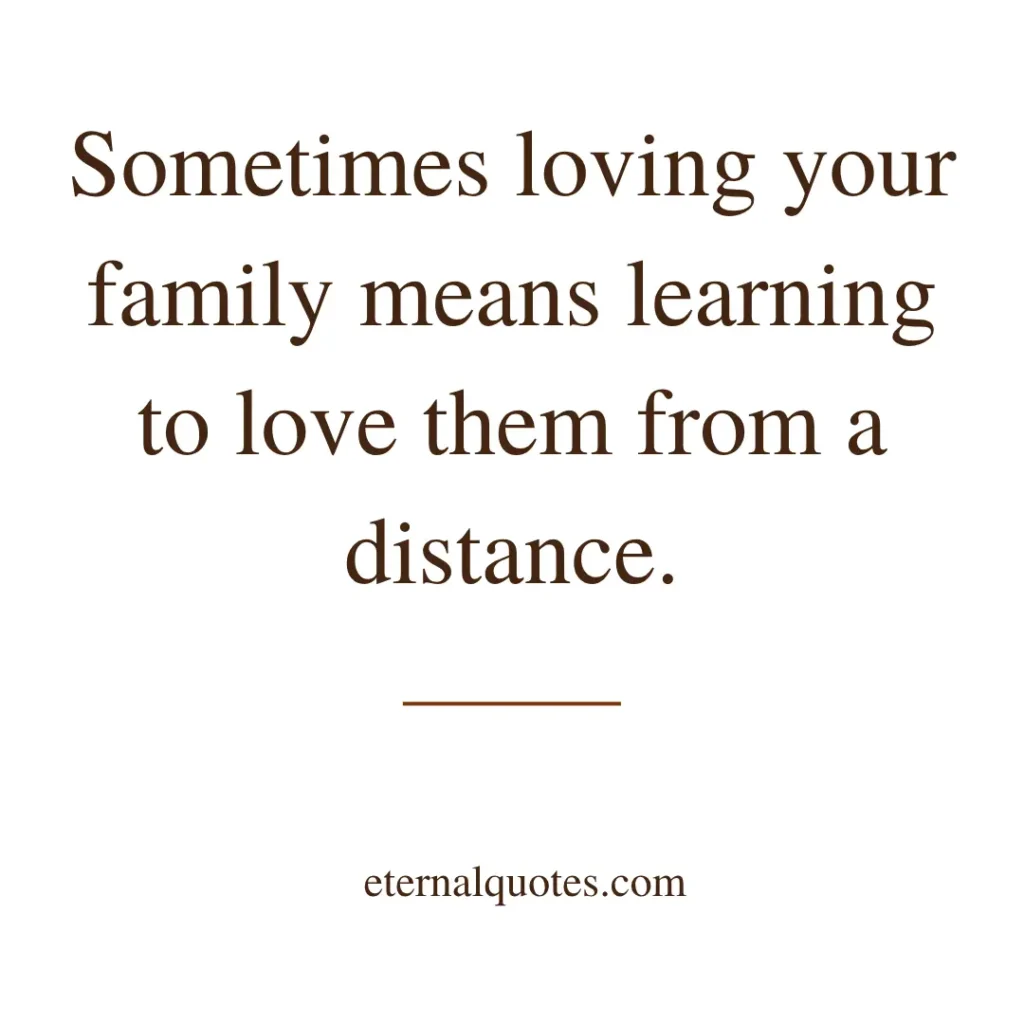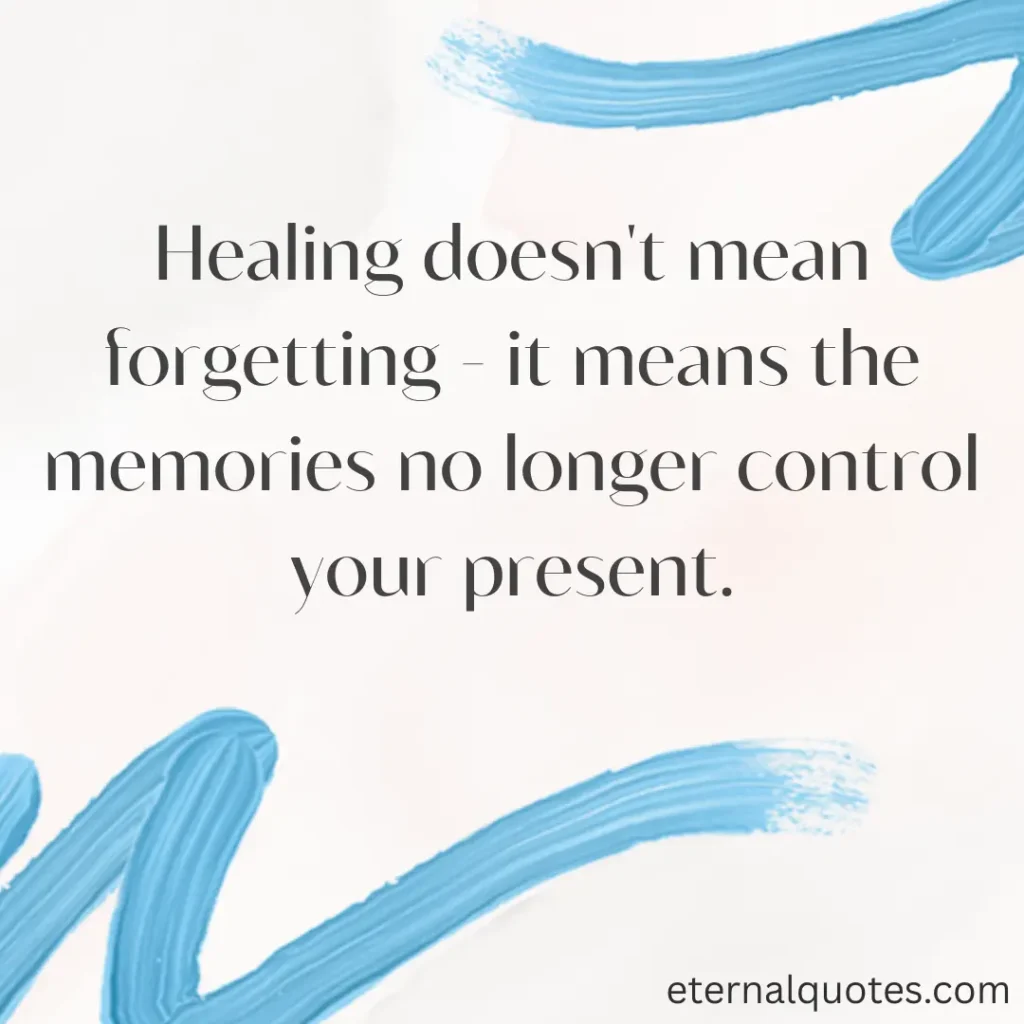Family isn’t always the picture-perfect unit we see in movies or on social media.
Real families deal with real issues – dysfunction, trauma, conflict, and pain that can span generations. But within these struggles lies something powerful: the potential for healing, growth, and genuine love.
These quotes speak to the messy, complicated truth of family life. They acknowledge the wounds while pointing toward hope. Whether you’re dealing with toxic patterns, setting boundaries, or working to heal generational trauma, you’re not alone in this journey.
Sometimes the most loving thing we can do is speak honestly about what isn’t working. That’s where real change begins.
- Breaking Generational Patterns
- Setting Boundaries with Toxic Family
- Dealing with Narcissistic Family Members
- Childhood Trauma and Family Wounds
- Family Communication Breakdowns
- Addiction and Mental Health in Families
- Divorce and Blended Family Challenges
- Financial Stress and Family Money Issues
- Estrangement and Family Reconciliation
- Healing and Moving Forward
Breaking Generational Patterns
Healing yourself breaks the chain of dysfunction for every generation that comes after.
The cycle ends with you when you choose to do the work they couldn’t do.
Some families pass down recipes, others pass down trauma – you get to decide what you serve.
Your children will thank you for the therapy you get today instead of the therapy they’d need tomorrow.
Breaking generational patterns isn’t betraying your family – it’s saving your family.
The bravest thing you can do is refuse to normalize what damaged you.
You can honor your parents while still acknowledging the ways they failed you.
Generational healing happens when someone finally says this stops here.
The family dysfunction that shaped you doesn’t have to define your children.
Sometimes loving your family means loving them from a distance while you heal.
Setting Boundaries with Toxic Family
You can love someone and still protect yourself from their dysfunction.
Setting boundaries with family isn’t cruel – it’s necessary for your survival.
The people who get angry about your boundaries are exactly why you need them.
You don’t owe anyone access to your life just because you share DNA.
Protecting your mental health isn’t selfish, even when family calls it that.
Some family members are more toxic than strangers because they know exactly how to hurt you.
You can’t set yourself on fire to keep someone else warm, even if they’re family.
Saying no to family dysfunction is saying yes to your own wellbeing.
The guilt you feel for setting boundaries was programmed into you by people who benefit from having none.
Sometimes the most loving thing you can do is step back and let people face their own consequences.
Dealing with Narcissistic Family Members
You’ll never get the apology you deserve from someone who doesn’t think they did anything wrong.
Narcissistic parents create children who either become narcissists or people-pleasers.
You can’t reason with someone who thinks your feelings are always wrong.
Narcissistic family members will rewrite history to make themselves the victim of every story.
The emotional manipulation feels normal when it’s all you’ve ever known.
They’ll punish you for having needs and then act like you’re ungrateful.
Narcissistic family members turn family gatherings into performances where everyone has to play their assigned role.
You’re not responsible for managing their emotions or protecting their fragile ego.
They’ll make you question your own reality because gaslighting is their native language.
The love they offer always comes with strings attached and a hidden price tag.
Childhood Trauma and Family Wounds
What happened to you as a child wasn’t your fault, but healing from it is your responsibility.
Your inner child deserves the protection and comfort you never received.
Some wounds are so deep they change the shape of your entire life.
The family that was supposed to be your safe place became your first source of fear.
Childhood trauma teaches you that love comes with conditions and pain.
You learned to be grateful for the bare minimum because that’s all they gave you.
The adults who should have protected you were often the ones you needed protection from.
Your hypervigilance isn’t paranoia – it’s a survival skill you developed too young.
Some families create wounds so deep that healing takes a lifetime of conscious effort.
The little version of you who endured all that deserves to be proud of who you’ve become.
Family Communication Breakdowns
The silent treatment is emotional abuse disguised as conflict resolution.
Family meetings often become courtrooms where everyone’s a prosecutor.
You can’t have healthy communication with people who weaponize your vulnerability.
Some family members only hear you when you’re screaming, then blame you for raising your voice.
Passive-aggressive family members say everything except what they actually mean.
The inability to have difficult conversations keeps families sick for generations.
Some families mistake screaming for honesty and silence for peace.
You can’t force understanding on people who benefit from misunderstanding you.
Family communication often involves more performing than actual connecting.
The conversations that need to happen the most are usually the ones everyone avoids.
Addiction and Mental Health in Families
Living with an addicted family member means grieving someone who’s still alive.
Mental illness in the family affects everyone, not just the person who has it.
You can’t love someone out of their addiction, no matter how hard you try.
Families often enable dysfunction in the name of helping.
Growing up with addiction teaches you that chaos feels like home.
Mental health issues run in families, but so does the stigma and denial.
You become an expert at reading moods and walking on eggshells before you can even walk properly.
Addiction makes liars out of people you used to trust with your life.
The family disease of addiction infects everyone it touches with fear, shame, and secrets.
Sometimes the kindest thing you can do is stop enabling and let people hit their bottom.
Divorce and Blended Family Challenges
Children become messengers and mediators in wars they didn’t start.
Blended families require everyone to learn new roles without a script.
The word step-parent carries weight that no one prepared you for.
Divorced parents sometimes forget that their children lost their family structure too.
Custody schedules turn childhood into a perpetual state of transition.
Blended families work best when everyone remembers that love multiplies, it doesn’t divide.
The loyalty conflicts in divorced families can tear children apart from the inside.
New family structures require new rules, new boundaries, and a lot of patience.
Some children become experts at living in multiple worlds just to keep everyone happy.
The grief of divorce affects every family member differently, but it affects everyone.
Financial Stress and Family Money Issues
Financial stress turns family dinners into budget meetings filled with tension.
Some families use money as a weapon and financial support as emotional control.
Growing up with financial instability teaches you that security is always temporary.
Money fights between parents become anxiety disorders in their children.
The stress of keeping up appearances while struggling financially exhausts entire families.
Financial trauma gets passed down just like other forms of family dysfunction.
Some family members mistake financial support for emotional connection.
Money problems reveal which family members will stand by you and which ones won’t.
The fear of financial ruin can make families either incredibly tight or completely fractured.
When money becomes the measure of love, everyone in the family feels bankrupt.
Estrangement and Family Reconciliation
Estrangement isn’t giving up on family – sometimes it’s saving yourself from them.
The family members who refuse to acknowledge their role in the estrangement often created it.
Going no-contact feels like grief because you’re mourning the family you wished you had.
Reconciliation requires accountability, not just the passage of time.
Some bridges are burned for a reason and shouldn’t be rebuilt until the foundation changes.
Family estrangement affects holidays, weddings, funerals, and every major life event.
The people who pressure you to reconcile usually aren’t the ones who lived through the abuse.
Sometimes the family you choose becomes more supportive than the one you were born into.
Reconciliation without changed behavior is just a temporary ceasefire in an ongoing war.
The door can stay open without you walking through it every time someone knocks.
Healing and Moving Forward
You can acknowledge your family’s role in your pain without letting it define your entire story.
Therapy becomes necessary when family dysfunction starts affecting every relationship you have.
The work of healing is hard, but it’s harder to live with unprocessed family trauma.
Some family members will never understand your healing journey, and that’s not your problem.
Forgiveness is for you, not for them – and it doesn’t require reconciliation.
Healing family trauma often means becoming the parent to yourself that you never had.
The patterns that feel normal to you might be the very things that need to change.
You can’t heal in the same environment that made you sick.
Family healing happens when someone finally chooses truth over peace.
The strongest families are often the ones that have learned to heal together instead of hurt together.
Final Thoughts
Family issues don’t have simple solutions, and that’s okay.
These quotes aren’t meant to provide easy answers but to offer validation for your experience. Sometimes the most healing thing we can do is acknowledge that our struggles are real and shared by others.
Whether you’re in the thick of family conflict or working through years of accumulated pain, remember that your feelings are valid. Your boundaries are necessary. Your healing matters.
The journey isn’t always pretty, but it’s yours to take.
You don’t have to carry forward what doesn’t serve you, and you don’t have to do it alone. Sometimes the family we create – through therapy, friendship, and chosen relationships – becomes the healing space our family of origin never provided.
That’s not failure. That’s growth.

